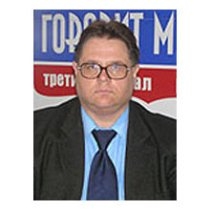Ru
|
Eng
Opinion: Intergovernmental agreements with Tunisia and Cuba offer great opportunities for cooperation with them in nuclear power industry
30.09.2016

On the sidelines of the IAEA’s 60th General Conference in Vienna Russia signed a number of agreements in nuclear power industry. In particular, Russia concluded intergovernmental agreements with Tunisia and Cuba on peaceful uses of atomic energy. Besides, Rosatom and the Jordan Atomic Energy Commission signed a memorandum to train specialists for Jordan’s first nuclear power plant that is to be built under the Russian project.
Leonid Gusev, an expert of the analysis center of the Moscow State University of International Relations of the Russian Federation Ministry of Foreign Affairs, told media that the intergovernmental agreements with Tunisia and Cuba offer great opportunities for further bilateral cooperation with those countries in the nuclear power industry, BelTA informs.
As for Tunisia, the matter pertains to the possible construction of a nuclear power plant that would help the country reduce its dependence on hydrocarbon exports. Apart from that, Tunisia may also be interested in the projects such as distilling plants, a nuclear research center and food irradiation plants.
In case with Cuba the most promising area, in my opinion, is the cooperation in nuclear medicine. Cuba has a well-developed healthcare sector. The development of such a high-technology and efficient area (with a view to treating diseases, and cancer in the first place) will add a new impetus to the Cuban healthcare. Russia is ready to supply medical isotopes to Cuba. The two countries are discussing the prospects of setting up a food and medical goods irradiation center on the island.
The agreement with Jordan to train specialists for the nuclear power plant is a logic step in the implementation of the country’s first NPP project. As is known, Rosatom offers its new clients an integrated package which envisages the construction of nuclear units and assistance in infrastructure and legislative development, training of specialists. Such a comprehensive approach considerably simplifies the life of the customers and guarantees long-term orders to them.
ANALYTICS
30.08.2023
21.03.2023
30.08.2021
02.07.2021
23.06.2021
10.06.2021
04.06.2021
03.06.2021
20.05.2021
15.05.2021













